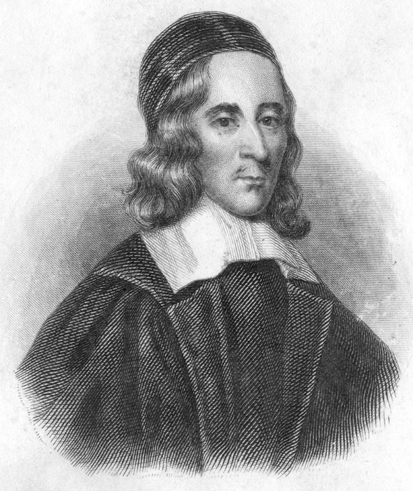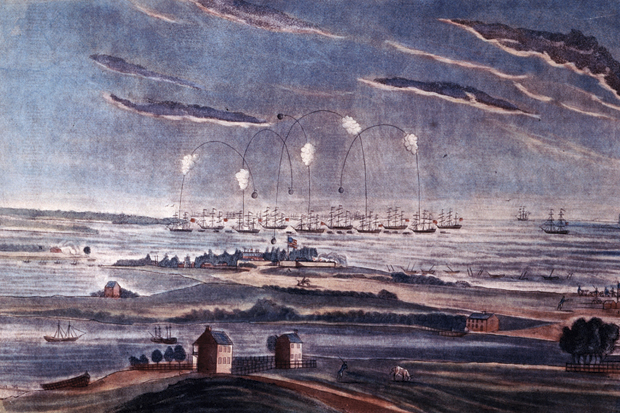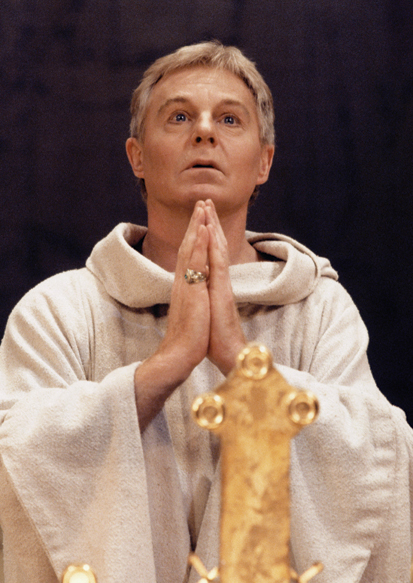Is poetry in good enough health to be made fun of in this way? The irony is that this long, funny poem describing the incestuous peccadilloes of contemporary poetry’s social purlieus deserves to be read, and almost certainly will be read — and purchased — by far more readers than all but a few collections of poetry, even those by rather good poets.
Christopher Reid was known originally as a poet of the ‘Martian’ school, which sought to find new ways of looking at the familiar: ‘Splitting an apple, / I find a cache of commas.’ More recently he gained wider attention as the author of the award-winning A Scattering, a moving collection of poems about his wife in her last illness and his own life as an ‘inhabitant/ of an empty house’.
In the world of poetry he is revered for his work as poetry editor at Faber, a position that certainly would have provided him with any amount of material for a satirical work such as Six Bad Poets. He seems to have waited for time to pass before using it.
For Six Bad Poets has a feel about it as of a world bypassed by the modern. There are poofs and boobs and gin-and-port, but this is all somehow appropriate to its principal story, that of Charles Prime, a poet who perhaps never had one, and who, at 77, has just emerged from a ‘brief fling with Her Maj’ for crimes never described but probably of a sexual nature, and has a ‘Weather eye turned to the main chance’.
Charles turns up wherever there is a free drink, from funeral receptions to art openings (‘but be fair, a man must eat’), and is constantly on the lookout for places to stay and old flames to bed. He settles first on Bryony Butters, ‘poet, novelist and more besides’, and then on Antonia Candling, ‘doyenne of London poetry’. He is pursued by Jonathan Wilderness, a young poet on the make, who plans to write Charles’s biography: ‘There’ll be plenty of muck/ to rummage around in’, he tells his friend Baz, a self-employed criminal. Derek Dufton, who wakes with a start and shudder from a lecture he is delivering, and Jane Steep, ‘a poet still in search of her voice’, make up the second-rate sextet.
The poem is divided into six parts of six chapters of six verses of six lines and reads as easily as Byron, the last line of each verse rhyming with the first of the next. The easiness of read — a hard thing to achieve — just about makes up for this scarcity of rhyme, and by the end the nagging thought that satirical poems really ought to rhyme at the very least abab is thoroughly silenced.
It is impossible to imagine that those unfamiliar with the upper echelons of London’s poetry scene will derive quite as much pleasure from reading Six Bad Poets as its members, but nevertheless it is a story elegantly told, with sharply realised characters, and is instantly and compellingly rereadable.
Got something to add? Join the discussion and comment below.
Get 10 issues for just $10
Subscribe to The Spectator Australia today for the next 10 magazine issues, plus full online access, for just $10.
You might disagree with half of it, but you’ll enjoy reading all of it. Try your first month for free, then just $2 a week for the remainder of your first year.











Comments
Don't miss out
Join the conversation with other Spectator Australia readers. Subscribe to leave a comment.
SUBSCRIBEAlready a subscriber? Log in